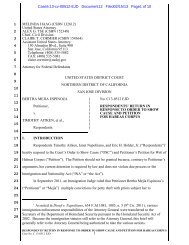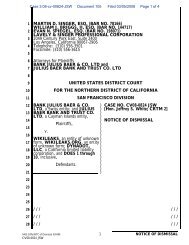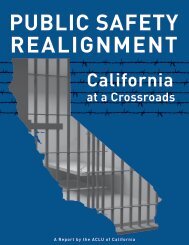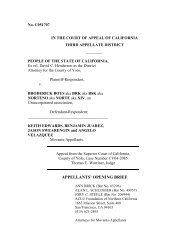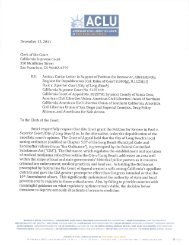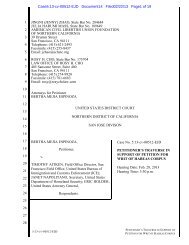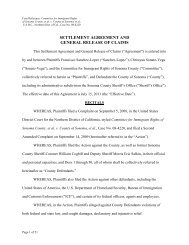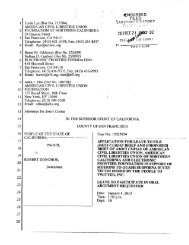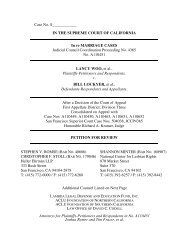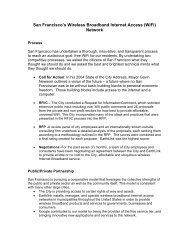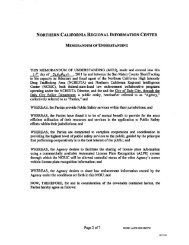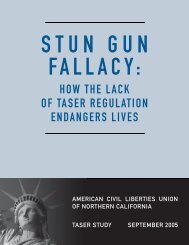1 of 2 - ACLU of Northern California
1 of 2 - ACLU of Northern California
1 of 2 - ACLU of Northern California
Create successful ePaper yourself
Turn your PDF publications into a flip-book with our unique Google optimized e-Paper software.
Case M:06-cv-01791-VRW Document 254 Filed 04/20/2007 Page 11 <strong>of</strong> 3212345678910111213141516171819202122232425262728996. Thus, Plaintiffs’ content surveillance claim in this case (as in Hepting) boils down to anunfounded and highly speculative allegation that they do not believe that the Presidentauthorized only a limited surveillance program directed at certain al Qaeda-related internationalcommunications. Moreover, they demand the opportunity to determine through discovery whatthe NSA has actually done with any alleged assistance <strong>of</strong> the Verizon Defendants. As set forthbelow, such an inquiry cannot be accomplished without disclosing state secrets and therebycausing grave harm to the national security. In particular, we disagree with the Court’sconclusion in HepthTg that discovery into whether a statutory certification was provided inconnection with the TSP could be conducted without revealing state secrets. Such discovery inthese cases would either confirm or deny whether Verizon or MCI assisted with the TSP, a factthat the Director <strong>of</strong> National Intelligence has concluded cannot be disclosed without causing~xceptionally grave harm to the national security. In addition, even apart from the relationshipissue, the process <strong>of</strong>"proving a negative"--that Plaintiffs’ content dragnet allegations arefalse---could not occur without disclosing what the NSA does and does not do. That processwould clearly implicate classified and highly sensitive facts, including operational facts~onceming the TSP that would demonstrate that the program was in fact limited to al Qaedarelatedone-end foreign communications.(U) With respect to Plaintiffs’ claim that the Verizon Defendants have provided the NSAwith records concerning their communications, this case presents the same issue alreadyresolved by this Court in Hepting and by two other courts, each <strong>of</strong> which upheld theGovernment’s state secrets privilege assertion and declined to allow any discovery into suchallegations. See Hepting, 439 F. Supp. 2d at 997-98; Terkel v. AT&TCorp., 441 F. Supp. 2d899, 917 (N.D. Ill. 2006); <strong>ACLU</strong>v. NSA, 438 F. Supp. 2d 754, 765 (E.D. Mich. 2006) (appealpending). While we believe that the proper course in Hepting should have been to dismiss thoseclaims, as the courts in Terkel and A CL U did, nothing warrants this Court from deviating fromPublic Memorandum <strong>of</strong> the United Statesin Support <strong>of</strong> Motion to Dismiss or for SummaryJudgment, MDL No. 06-1791-VRW-3-



